Can I Get Workers’ Comp and Disability?
Workplace accidents are common in the United States. Every year, there are approximately 4.53 million work-related injuries in the country that are medically-consulted. These injuries lead to countless lost work hours that affect both the workers and their employers.
If you’ve suffered a workplace accident resulting in injuries, you need to have a work injury lawyer by your side. They can help you navigate the tricky process of applying for workers’ compensation and any other benefits you could be entitled to, including Social Security disability.
A common question people who suffer workplace injuries have is, “Can I get workers comp and disability?” Here’s a closer look at what both of these options are and why it’s possible to apply and receive both.
Workers’ Compensation Versus Disability Benefits
Often, people confuse workers’ compensation and disability benefits, or they lump them together. It’s true that both options offer monetary support for workers who’ve suffered injuries or illnesses, but they provide distinct benefits. Their requirements also vary.
Workers’ comp covers work-related injuries and illnesses. If the employee dies from a work accident or illness, their dependents can receive their workers’ compensation. Injuries outside of work aren’t eligible for workers’ comp.
Disability insurance can cover things like mental health concerns and diseases like multiple sclerosis. It can also cover physical impairments that result from an accident that occurred outside of work. However, it doesn’t cover injuries sustained in the commission of a crime.
How Workers’ Compensation Works
Workers’ comp is a government-mandated program that provides support to people who suffer injuries or illnesses from work-related causes. It’s handled primarily through the states, which is why the requirements can vary greatly. That’s one of the reasons that getting a workers’ compensation lawyer is crucial.
In New Jersey, workers’ compensation is a requirement for all employers. It’s a no-fault system, which means the employee doesn’t have to prove negligence in order to collect benefits.
It applies to employees who’ve been in workplace accidents as well as those who’ve worked in environments with harmful substances or allergens. Workers’ comp also applies if you sustained a repetitive stress injury, which develops over time.
Repetitive stress injuries are common office injuries, but any worker can suffer from them.
People who are exempt from receiving workers’ compensation include:
- Unpaid volunteers
- Unpaid interns
- Sole proprietors with no employees
- Independent contractors
Workers’ compensation can help cover a variety of losses, including medical expenses. Keep in mind that New Jersey allows the insurance carrier or the employer to choose the healthcare provider for the treatment the employee needs.
If there are ongoing medical care costs while the recovery takes place, workers’ comp covers these, too. It also covers lost wages if you’re unable to return to work for a while as you recover and get treatment. For those who can’t work for at least seven days, it’s possible to get temporary total disability benefits.
If you return to work but can’t perform the job in the same capacity you did before, then you may be able to receive permanent partial disability benefits. Employees who’ve lost two major body parts or aren’t able to work at all can be eligible for permanent total disability benefits.
In instances when an employee dies because of a workplace accident or illness, the family can receive death benefits. This helps cover funeral costs.
How Social Security Disability Insurance Works
Social Security Disability Insurance is a program that the federal government runs. Anyone who works pays into SSDI through their paychecks. The program offers benefits to disabled workers and their dependents. For people who are no longer able to work, SSDI pays for some of their lost income.
It’s crucial to understand that SSDI has a very narrow view of what disability means. For one thing, this program doesn’t provide partial or temporary disability benefits.
Under the Social Security Act, a person is considered to be disabled if they can’t work because of a severe medical condition that has already lasted a year, is expected to last at least that long, or will lead to death. The condition has to prevent them from doing the work they performed in the past and keep them from future work.
Unlike workers’ compensation, SSDI covers injuries and illnesses that didn’t occur in the workplace. However, you need to have earned enough credits over the past 10 years to qualify.
Collecting Workers’ Compensation and SSDI at the Same Time
These two types of benefit programs are unconnected, so it’s possible to apply for both if you’ve suffered a workplace injury or illness. If you receive workers’ compensation and the injuries are severe enough that you’ll be unable to work for at least 12 months, you should apply for SSDI.
Keep in mind that your Social Security benefits can be reduced if you receive workers’ comp. The SSA can lower your SSDI so that it covers less than 80% of what your income was before the injury.
Because workers’ compensation tends to be temporary, if you stop receiving it, you need to let the SSA know so that they can consider whether you’re eligible for higher SSDI rates.
How Workers’ Compensation and SSDI Define Disability
Workers’ compensation and SSDI define disability differently. Workers’ comp considers you to be disabled if the injury or illness you sustained keeps you from being able to work in your regular capacity, even if it’s a temporary issue. That’s not the case with SSDI.
SSDI requires that the disability be serious enough that it doesn’t allow you to do any kind of work. If the disability is permanent, it’s possible to apply for both permanent total disability benefits and SSDI benefits.
Getting Approved for Workers’ Compensation Payments and Disability Benefits
If you’ve suffered a construction site injury that has left you unable to work at all for at least a year, what steps do you have to take to get approved for workers’ compensation and SSDI?
When getting ready to apply for workers’ compensation, the first thing you need to do is to report the accident and injury to your employer. You don’t have unlimited time to do this. It’s always a good idea to report the injury in writing and to note the date and time when it took place.
You then need to get medical treatment as soon as possible and follow all of your doctor’s recommendations. As you get treatment, you need to stay updated on the status of the claim. Your employer has to file the claim within 21 days after receiving your notice of the injury. If they don’t, then you need to hire a lawyer.
You can apply for SSDI online or over the phone. It typically takes anywhere from three to five months to receive a response. Unfortunately, it’s very common for the federal government to deny these claims. Because of the complexities involved in the process, you need to turn to experienced lawyers.
Denials Are Common for Workers’ Compensation and Social Security Disability Benefits
Filing a claim for either worker’s compensation or SSDI is difficult, with many potential pitfalls in the process that make it likely you’ll receive a claim denial if you try to do everything on your own.
Common Reasons for Workers’ Compensation Denials
Perhaps one of the most common reasons your worker’s compensation gets denied is the lack of evidence linking your injury to a workplace accident. This can occur if there aren’t witnesses or video footage.
Although it makes the claim more difficult, a lawyer can demonstrate that the injury you sustained occurred at work even if there weren’t witnesses. They may have to rely on expert medical testimony and more.
Sometimes, pre-existing conditions can also complicate a claim and make it more likely that you’ll be denied. It’s crucial to distinguish a new injury from an existing condition that has worsened, and that usually means relying on experienced workplace injury lawyers.
Another potential complication is missing filing dates. There are lots of deadlines you have to keep in mind, and you’ll be dealing with injuries and other stressors, so you have to have a lawyer by your side.
Common Reasons for SSDI Denials
SSDI denials can also occur if there isn’t enough medical evidence to prove you have a disabling condition that won’t allow you to work for at least 12 months. The medical records you provide have to be detailed and must explain how the injuries keep you from working.
It’s also common for people who’ve been denied a claim to just file another one instead of appealing the decision. This results in multiple applications that the government will deny. You always want to turn to a lawyer to file an appeal if your claim has been denied.
If you’re still working and earning more than a certain income threshold, the government can deny your claim. To be eligible for SSDI, non-blind people can’t make more than $1,550 a month.
Your injury or illness has to qualify to receive benefits. The SSA has a list of conditions that are considered serious enough to prevent you from working. It’s crucial to note that your condition may not fit perfectly into the injury categories, which can make the claim easier to deny.
Another common reason you could be denied is if your work history is not long or isn’t recent enough. You need to have certain work credits, which you gather by paying your taxes via your paycheck, and they need to be mostly from the last 10 years.
How Long Do You Have to File a Workers’ Compensation and Disability Claim?
For workers’ compensation claims, generally speaking, you need to file within two years. However, certain circumstances may result in different timelines. Keep in mind that the sooner you apply, the fresher the evidence will be. The process is also long, and you don’t want to be dealing with lost wages and medical bills without help.
People often think that you have to be disabled for 12 months before filing for SSDI. That’s not the case. You can file right after the injury occurs as long as the disability you’re experiencing will last at least a year. The SSDI claims process can be long, so immediately starting after the disability occurs makes a difference.
How a Work Injury Lawyer Can Help
When you’re planning on filing for workers’ compensation or SSDI, one of the first things a work injury lawyer can do to help you is assess whether you can apply for both or not. Often, people don’t realize they have this option.
They can then help you gather the right evidence to present so that you can avoid a claim denial. They’ll guide you in finding the kind of medical evidence you will need and will even speak with witnesses to the workplace accident.
The right lawyer will have contacts in the medical field who can offer their testimonies on the severity of the injuries. That can be especially helpful in SSDI claims.
A work injury lawyer will also file all of the paperwork involved with these claims. The paperwork alone can feel overwhelming, especially when dealing with debilitating injuries, so having someone who will do it for you and ensure that it’s completed correctly and on time takes a huge weight off your shoulders.
Your lawyer has experience with the entire process of filing these claims, so they’ll be able to guide you through each step. If your claim is denied, they know how to appeal and will do so quickly.
Dealing with the federal government is especially difficult, so you should never file an SSDI claim on your own. If the SSA denies your claim, you need to have a lawyer ready to fight for your rights.
What’s even better is that you don’t have to worry about more bills because lawyers who handle these kinds of claims work on a contingency fee basis. They only get paid if you do.
Why Choose Garces, Grabler & LeBrocq
Facing injuries that keep you from returning to work can mean missing out on the income you need, along with having to stress about paying medical bills. If the injury or illness occurred in your workplace, then you could be eligible to receive workers’ compensation. In some cases, you could apply for Social Security Disability, too.
Knowing your options is just one important part of the process. The other is having experienced work injury lawyers by your side. At Garces, Grabler & LeBrocq, we have decades of experience helping the people of New Jersey who aren’t able to work because of a disability, and we can help you, as well.
Whether you sustained an injury or illness at work or you’ve suffered a disabling injury or illness that doesn’t allow you to return to work at all, you have a right to get help from your employer, the government, or both. We can guide you through the entire process, from filing the claim to gathering evidence and dealing with appeals.
We’re tenacious and compassionate lawyers who are ready to fight for your rights. Because everyone should be able to get help, no matter what language they speak, we represent both the English and Spanish-speaking communities of New Jersey.
We also understand how tough dealing with injuries and not being able to return to work can be, so you can expect to be treated with the utmost respect from the moment you step through our doors. We’re always on your side.
Contact Work Injury Lawyers in New Jersey
If you’ve suffered an injury at work or have a disability that doesn’t allow you to provide for yourself and your family, you need to turn to work injury lawyers. With a team of experienced attorneys like us at Garces, Grabler & LeBrocq, filing a claim can be much easier and less traumatic.
Don’t wait to get help. Contact our team today by calling 800-923-3456 to schedule a free consultation with one of our work injury lawyers.
Related Blogs
No Fee Unless
GGL Wins
We've got you covered.
We are available 24/7/365
One of our advisers will contact you.

OFFICIAL PARTNER OF RUTGERS ATHLETICS



Recent GGL Wins
Auto Accident
Mediation award Plaintiff was injured in an intersection motor vehicle collision resulting in neck and lower back fusion surgeries.
$2 Million
Verdict
Workers Compensation
25-year-old laborer died in an industrial accident while working.
$1.15 Million
Verdict
Construction Accident
Roofer fell off roof causing head trauma resulting in a head injury. Plaintiff was not given fall restraint protection equipment by contractor.







